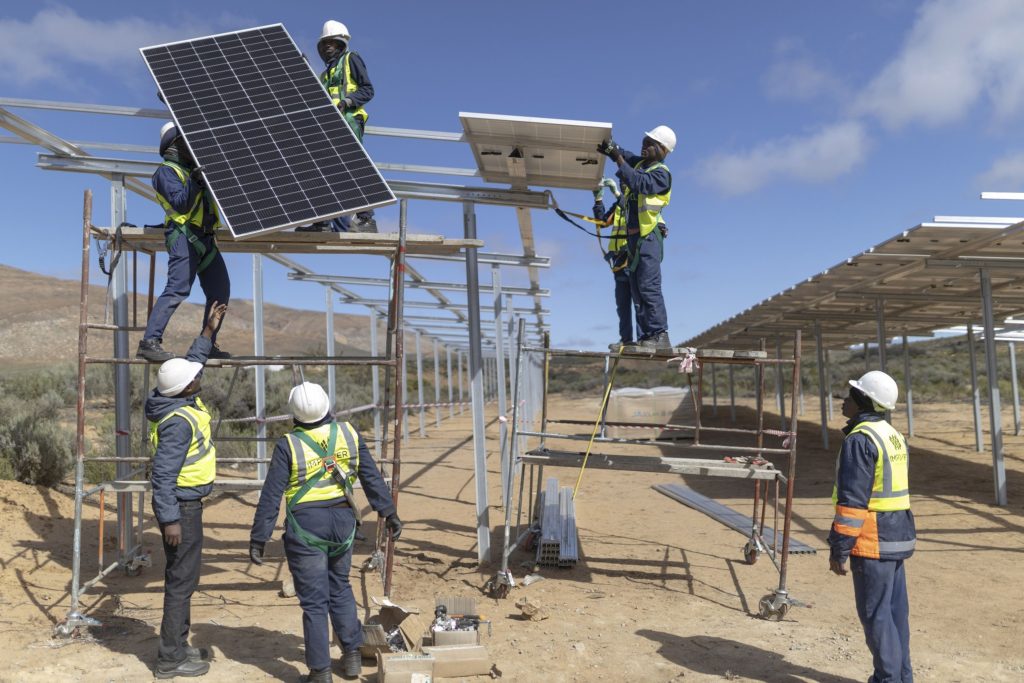Solar energy is gaining ground in the Western Cape, with two major solar projects announced for the province this week alone. It comes as private-sector players look to reduce their dependence on embattled Eskom.
According to announcements made by private sector players, the small railway town of Touws River will be home to three 75MW solar PV farms, while a deal between a foundry operator and an energy solutions company will birth the province’s largest embedded generation solar project yet.
Read: Beware government’s spin on ‘fixed’ Eskom
Automobile engine and engine parts manufacturer Atlantis Foundries has signed a 20-year power purchase agreement with Energy Partners, which will replace about 20% of the former’s yearly electricity consumption.
The Atlantis Foundries-linked project, which will comprise over 20 000 ground-mounted solar panels, will boast a total rated capacity of 13.5MWp and will be engineered, financed, constructed and operated by Energy Partners.
“Opting for renewable energy is a significant step, and the system that we designed for Atlantis Foundries is expected to save more than 22 000 tons of CO2 emissions annually, likely the highest reduction achieved in the South African automobile industry,” says Energy Partners CEO Manie de Waal.
“In financial terms, the system will generate electricity worth more than R35 million per year at current average Eskom tariffs,” he notes.
De Waal says that the agreement will only commence in May 2024.
Read:
Think carefully before selling excess solar to Joburg’s City Power
Stage 6 is back …
“With this renewable energy generation project, we are setting new standards in the South African automotive industry and alleviating pressure on our constrained national grid,” says Pieter du Plessis, CEO of Atlantis Foundries.
In the other announcement this week, Prescient Investment Management confirmed its partnership with H1 Holdings to invest R220 million in the building of a solar farm in Grootfontein, which is planned to go live in 2025.
According to the investment company, the project – said to have the potential to power 100 000 households once completed – will be funded by Prescient’s Clean Energy Fund.
The fund has already invested in 31 renewable energy projects and already contributed to 2.3GW to the country’s ailing national electricity grid.
The solar farm project was awarded to H1 Holdings – a 100% black-owned infrastructure investment and development company – as part of the fifth bidding round of the Department of Mineral Resources’ Renewable Energy Independent Power Producer Procurement Programme (Reippp).
Read:
Prescient in deal to boost black ownership
New grid rules spike risk
“H1 Holdings’ goals align with our focus with respect to giving investors access to ESG-centric products and supporting renewable energy generation that will alleviate the energy crisis weighing heavily on South Africa’s economy,” said Prescient’s portfolio manager and credit structuring specialist Luzuko Nomjana.
“These solar farms will also contribute to the country’s development by creating employment for previously disadvantaged people in the surrounding communities and uplifting them through other socio-economic initiatives.”
H1 Holdings holds a 46.5% equity participation in the solar projects alongside Norwegian renewable energy company Scatec Solar, which holds a majority (51%) stake, while the balance is held by a community trust.
Listen to Ryk van Niekerk speaking to Thami Mathiso of City Power about its plans to purchase excess solar power from households (or read the transcript):
You can also listen to this podcast on iono.fm here.

